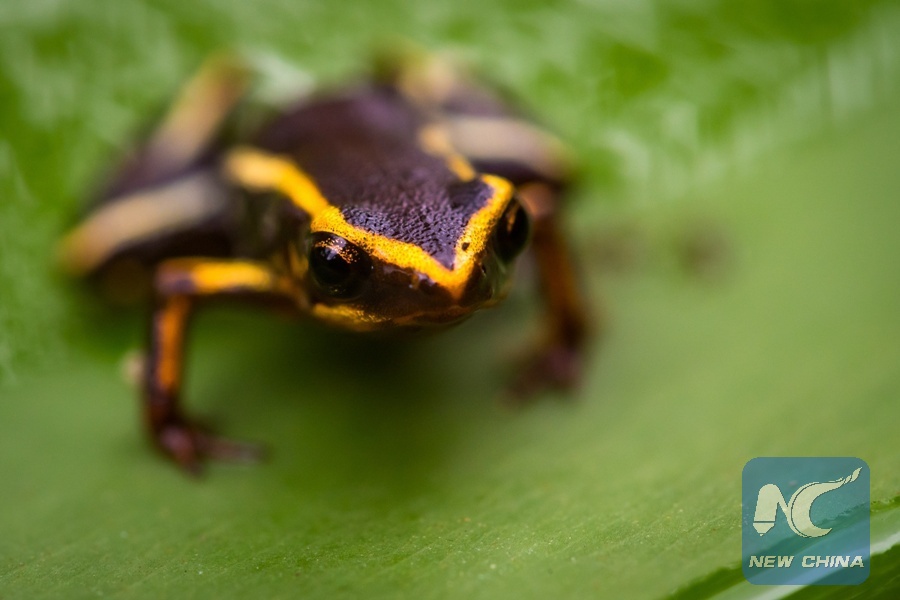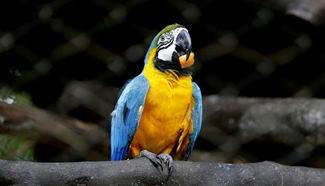
Monte Iberia eleuth is seen at the Alejandro de Humboldt National Park in Guantanamo Province of east Cuba, Feb. 12, 2016. (Xinhua/File Photo)
SAN FRANCISCO, July 26 (Xinhua) -- A team of U.S. and Brazilian researchers suggests that mating on land in frog species might in part be a strategy that male frogs use to ensure that their own genetic imprint gets passed on, instead of that of their rivals.
Biologists have long thought that some frog species evolved to mate on land instead of in open water to better guard eggs and tadpoles from being eaten by fish and other predators. However, the new study, published online ahead of print this week in the American Naturalist, gives a new idea.
Frogs have a "dizzying array" of reproductive strategies, said Rayna Camille Bell, a University of California, Berkeley, postdoctoral fellow who contributed to data collection, analyzed and interpreted much of the data, and helped co-author the study, which was led by her doctoral thesis adviser, Kelly Zamudio, a professor at Cornell University.
Mating in frogs typically involves the male wrapping his arms around the female, the female depositing eggs and the male fertilizing the eggs, which will hatch into tadpoles and develop into froglets. The earliest frogs completed all of these steps in water, but frog species vary in where they mate, where they lay eggs, where tadpoles develop and whether and how eggs and tadpoles are tended to by parent frogs.
In reviewing datasets built upon the field work of other biologists and their own data on hundreds of species in two different families of tropical frogs, the Hylidae and Leptodactylidae, the researchers found that most of the diversity in reproductive strategies involves the egg stage. It indicates that selection is acting independently on eggs versus tadpoles, Bell said, suggesting that there might be other evolutionary advantages of depositing eggs on land.
When mating occurs away from the main body of water, the site seems to be often more private and hidden from competing males.
"Besides avoiding aquatic predators, the benefit of depositing your eggs on land away from the main body of water - if you are a male frog - is that you get the female away from the breeding frenzy where there are hundreds of males all competing for access to females," Bell said. "On land, it's easier to make sure that no other male is moving in on your female and fertilizing her eggs."
"The tropics have the greatest frog species diversity, as well as the most diversity and complexity in frog reproductive modes," Bell was quoted as saying in a release from UC Berkeley on Tuesday.
"But we know the least about the biology, behavior and diversity of these tropical species, even though many are threatened, and some are only now being discovered for the first time."











